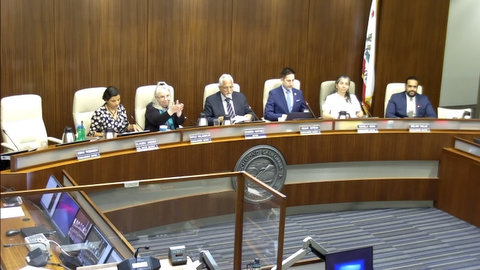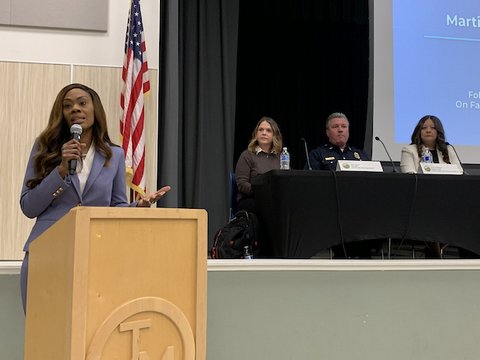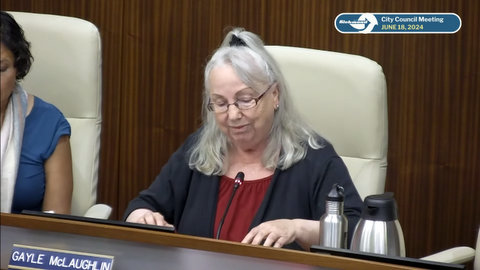
22 May Richmond Moves Forward With New Effort to Tax Chevron

Richmond City Council on Tuesday approved advancing a potential tax on Chevron that could appear on the November ballot. (Screenshot captured by Samantha Kennedy / The CC Pulse)
By Samantha Kennedy
Richmond is taking a risk by doing something it’s tried before in its efforts to increase taxes on the Chevron refinery. This time, it thinks it might have it right.
The city received an outpouring of support Tuesday for a proposed tax on Chevron that it says would increase revenue for services, ensuring the company pays its fair share to the community it has been in for over a century.
“We are learning how to be innovators in this city,” said Mayor Eduardo Martinez. “(Being a part of the council) is about taking risks, it’s about moving forward, it’s about testing the boundaries so that we can advance.”
The proposal, brought forward by Vice Mayor Claudia Jimenez and Martinez, comes two weeks after a draft budget showed a $34 million gap in funding for necessary services, including improving low staffing levels. The gap is only a part of a bigger problem the city may be facing, according to city financial forecasts that show increased revenue is needed to prevent deficits within the next five years.
When the proposed tax on Chevron, formally known as the Richmond Refining Tax Act, could bring revenue to the city, however, is unknown.
The tax addresses similar issues as the 2008 Measure T, another tax on the refinery, which voters passed but was deemed unconstitutional in court. An appeal by Richmond led to a settlement with Chevron that will expire next year.
Some council members were confident voters would pass the Richmond Refining Tax Act, which would appear on the November ballot, but also wondered if Chevron would challenge it and, as with Measure T, delay revenue to the city.
Chevron senior public affairs representatives Brian Hubinger and Hakim Johnson disagreed with the city’s approach to increasing city revenue, saying the tax would have the opposite effect of its intention.
Johnson said the tax “fails to build on the collaborative efforts” between the city and Chevron, including the Chevron Modernization Project. And Hubinger believes the tax is punitive, calling it the “wrong approach to solve the city’s long-term budget issues…to encourage investment in the facility and in the city” that could lead to better energy solutions.
>>>Read: Chevron Required to Reduce Emissions and Pay Up Millions
Communities for a Better Environment and the Asian Pacific Environmental Network, which helped bring the proposal forward with Jimenez and Martinez, are confident the new tax would hold up in court.
Holes in Measure T are “easy to address now,” according to the accompanying CBE and APEN presentation. Kerry Guerin, an attorney for CBE, said the proposed levy, known as an excise tax, is “very commonplace in California” and believes it “would survive legal challenge” by Chevron.
The council, with the exception of Doria Robinson who was absent, voted in favor of moving forward with the proposed tax.
The city attorney will now draft a ballot measure with specific language and financial impact on the tax.
Tobacco retailer moratorium extension
The council extended the tobacco retailer moratorium another 10 months, expanding the initial 45-day urgency ordinance passed in April and giving staff more time to revise relevant regulations.
The initial ordinance came in response to complaints of numerous tobacco retailers popping up in the city, with some worried about their impact on youth and crime in the community.
>>>Read: Curbing Youth Tobacco Sales a Social Justice Issue, Advocates Say
Since approving the urgency ordinance in April, city staff said in a report that they’ve begun a community engagement plan, assembled a legal team for regulation recommendations and are in the process of creating a team that will focus on enforcement and review of shop licenses.
The extended moratorium, however, is necessary, according to staff. The extension will allow city staff to engage in public outreach, studies on regulations and additional hearings.
The extended moratorium will last until April 15, 2025, and staff is expected to bring revisions to regulations at the end of the year.






No Comments